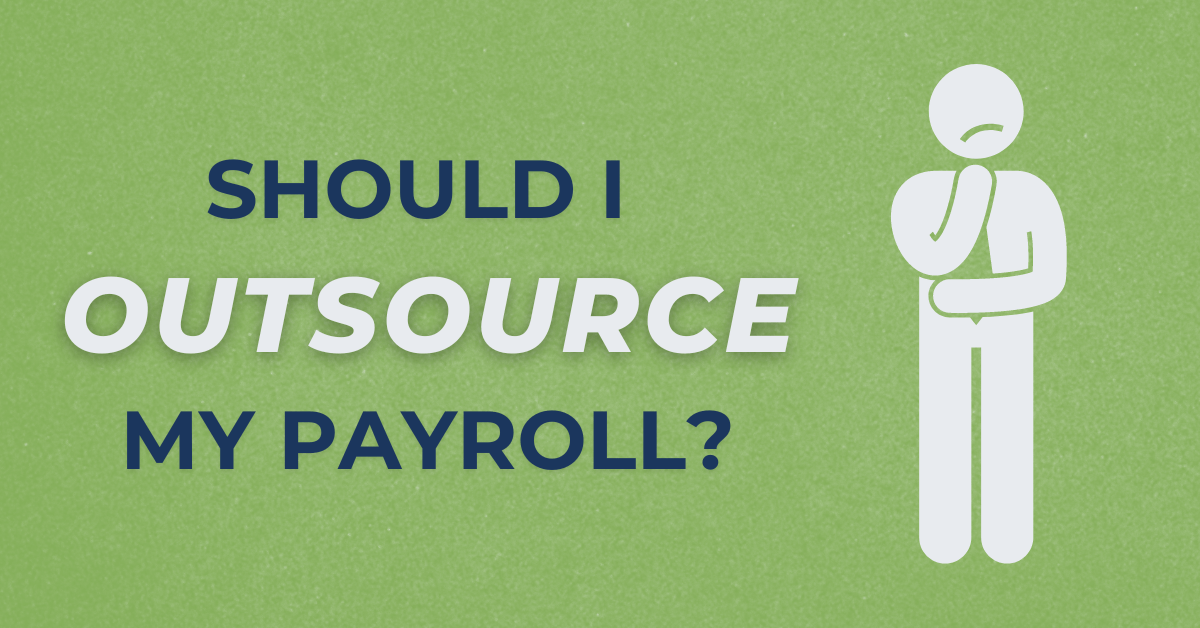Outsourcing Your Payroll: Is it Right for Your Business?
August 27th, 2024 | 3 min. read
By Shelby Betts

Ah, payroll — that delightful time when you get to channel your inner mathematician and wrangle with tax codes, employee benefits, and the ever-elusive paycheck accuracy.
Sound fun? Didn't think so.
But hey, maybe you love spending your valuable time sifting through paperwork and handling the occasional, "Why was my paycheck wrong?" email.
If that sounds more like a nightmare than a good time, outsourcing your payroll might just be the escape you’re looking for. But is it the best choice for your business?
What is Payroll Outsourcing?
Outsourcing your payroll means entrusting a third party with the responsibility of handling your company's tax filings and employee payments.
Whether you have one employee or one hundred, outsourcing your payroll processing helps you make sure that your tax payments are made – and made on time.
The Consequences of Late Payroll Payments
An FTD (Failure to Deposit) penalty occurs if you do not pay them punctually:
- 2% of the unpaid deposit for payments that are 1 to 5 days late
- 5% for tax payments that are 6-15 days late
- 10% for deposits that are more than 15 days late or made within 10 days of receiving the first IRS notice requesting a tax payment
- 15% for deposits not received within 10 days after receiving the first IRS notice demanding payment
- 10% penalty for deposits not made by electronic funds transfer
If payroll errors are so detrimental, they can’t be that common, right? Wrong. Especially when you consider Ernst & Young (EY) found that 1 in 5 of the average company’s payrolls over the course of a year contain errors.
Outsourcing payroll to a reliable provider means you won’t have to worry about these costly penalties. Instead, you can sleep easy knowing that all payments and filings are handled accurately and on time, leaving you free to focus on running your business—or anything else that’s more fun than filing taxes.
When Outsourcing Payroll May Not Be Right for You
While outsourcing payroll offers numerous benefits, it may not be the best option for every business. Here are two scenarios where keeping payroll in-house might make more sense.
1. Your Industry Requires Job Costing
Job costing is an accounting practice that tracks the revenue and expenses of specific jobs or projects. It means that you are tracking every dollar of wages for each job or project, so outsourcing this level of detail can be very difficult.
If you have the systems set up to track the time and account for the information by project, outsourcing can be an option but a lot of times — it isn't.
For example, let's say you own a pool company. You have a crew that will work on Matt's pool for a couple of hours. While they're waiting for the concrete to finish drying, they'll go to Mike's pool.
In this case, you need to know how many hours your employees are at Mike or Matt's pool because you need to know how much to bill Mike and Matt. From a financial standpoint, this helps you create cost reports on how much your cost of goods is and if you have adequate margins.
Total Job Cost = Direct Materials + Direct Labor + Applied Overhead
Unfortunately, no matter how good your payroll provider is, they won’t know your jobs as well as you do. They can’t magically generate the detailed reports you need without your input.
If job costing is a must for your business, keeping payroll in-house might be the smarter move. You may need to invest in software that integrates with your accounting system, but at least you’ll have full control over the details.
2. You’re Attached to Your Process
The second reason you should keep payroll in-house is if you are not willing to let go of your specific processes and trust someone else to handle your back-office needs.
If you’re the type who likes things done a certain way, outsourcing payroll might be more frustrating than freeing.
For example, if you process payroll on a Monday and hand out checks on a Tuesday, you may have to change that with a provider.
Outsourcing often requires adapting to new software and processes. If your current system has been working smoothly for years and your business isn’t growing rapidly, it might not be worth the time and effort to make the switch.
What’s the Cost Difference?
The cost difference is the penalty for doing it wrong, i.e., missing something or not filing and paying on time.
The IRS has estimated that around one-third of employers make a payroll mistake in any given year. The average cost of these mistakes to employers is nearly $850 per year.
What is the average cost of outsourcing your payroll?
If you outsource to a payroll provider, you generally pay either per process or per employee per month (PEPM) — you can read more about the pros and cons of each here.
At Whirks, our clients pay PEPM, which means if you have twenty employees and want to only process your payroll, you'll be paying around $10.25 per month per employee.
As your business grows, your payroll provider’s software can scale with your needs, offering additional services like benefits administration or timekeeping integration.
Consider Leaning on the Experts
Outsourcing your payroll is a strategic way to dodge the complexities of tax liabilities, deadlines, and compliance, letting you hand these tasks off to someone who actually enjoys them.
If you’re considering outsourcing, explore our article on What to Look for in a Payroll Service as a Small Business to find the best fit for your business.
Topics: